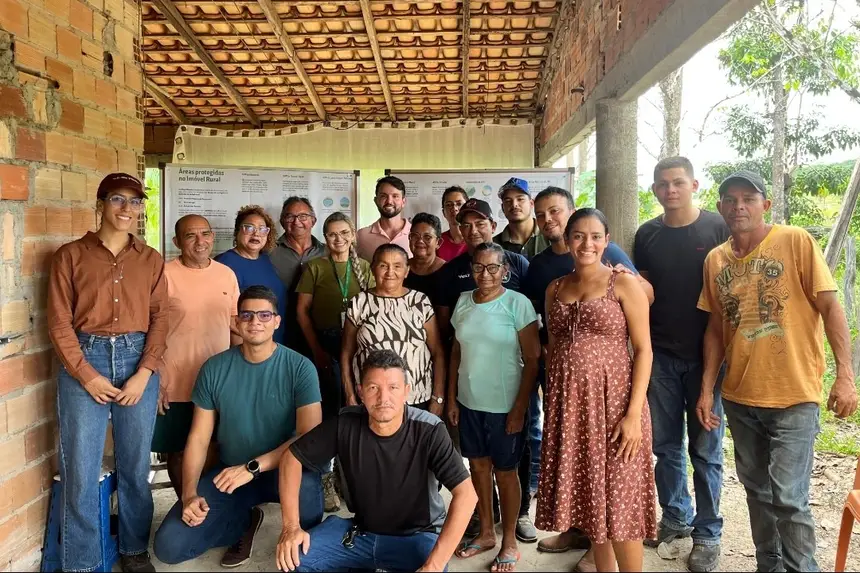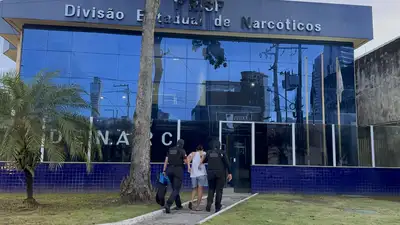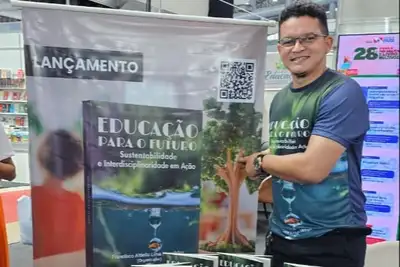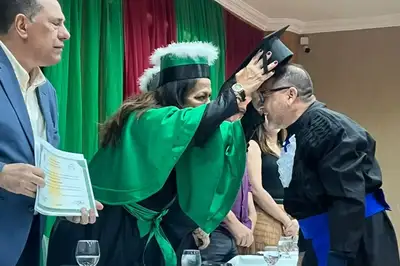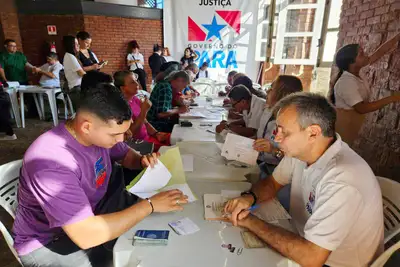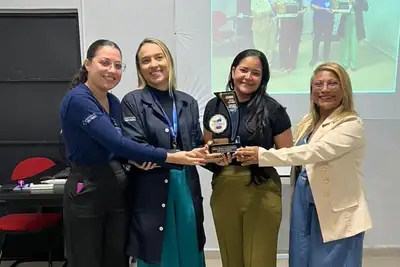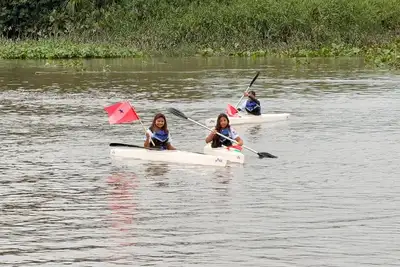Government of Pará guarantees environmental registration for farmers in Irituia
Environmental registration is essential for rural producers to operate in accordance with environmental legislation, allowing them to access credits and rural incentives
Suppliers of bioinputs for the multinational cosmetics industry, farmers from Irituia, on the Rio Capim, are being supported by the Government of Pará, through the local office of the State of Pará Technical Assistance and Rural Extension Company (Emater) in the municipality, for the issuance or rectification of rural environmental registrations (cars) of the properties. The car is mandatory in the context of environmental regularization, according to the Forest Code (Federal Law 12.651/12).
Throughout this week, a delegation with specialists from Emater, the Deutsche Gesellschaft für Internationale Zusammenarbeit (GIZ) GmbH - from the German government, and the company Natura, which contracts raw materials such as muru-muru and tucumã, visited the communities of Araraquara, Lago Grande, and Floresta to survey 38 families who are members of the Irituian Family Farmers Agricultural Cooperative (D’Irituia).
The preliminary action, concluded on Wednesday (17), meets a demand raised by the Cooperative itself. The goal is to raise awareness about the importance of all stages of environmental compliance and to regularize the documentation of the properties, in order to ensure continued access to public policies, such as rural credit, and to expand selected markets within the scope of circular economy, solidarity economy, and social entrepreneurship.
The mobilized families primarily work with açaí extraction, cassava planting and processing, and agroforestry systems (safs), in which native species such as andiroba stand out.
“The partnership with international entities from the public sector and with the private initiative only qualifies an action that is the just reason for Emater's existence: to be present in person, on-site, deeply engaged in the Amazonian reality of the communities and families. We are the tip of a process of dialogue, information flow, and effectiveness of public policies and cultural, social, and market opportunities,” points out the head of the local Emater office in Irituia, pedagogue Wagma Monteiro, a specialist in School Management and in Portuguese Language and Literary Analysis.
For farmer Maria Valquíria Cordeiro, 43, financial director of the D’Irituia cooperative, Emater's support is “immense”: “Everything we need, we request, Emater responds, and does everything possible to make it work,” she says.
On the 32 hectares of Sítio Monte Cristo, in the km 24 community of the BR-010 highway, in the São Francisco region, Cordeiro cultivates organic vegetables and cassava, among other activities.
The flagship product for commercialization is an original recipe, made entirely from ingredients of Amazonian tradition: “cuí” (“fine flour,” in Tupi) from water flour, butter from a bottle, jambu, and spices. The special version of the product is flavored with malagueta pepper.
Text by Aline Miranda


